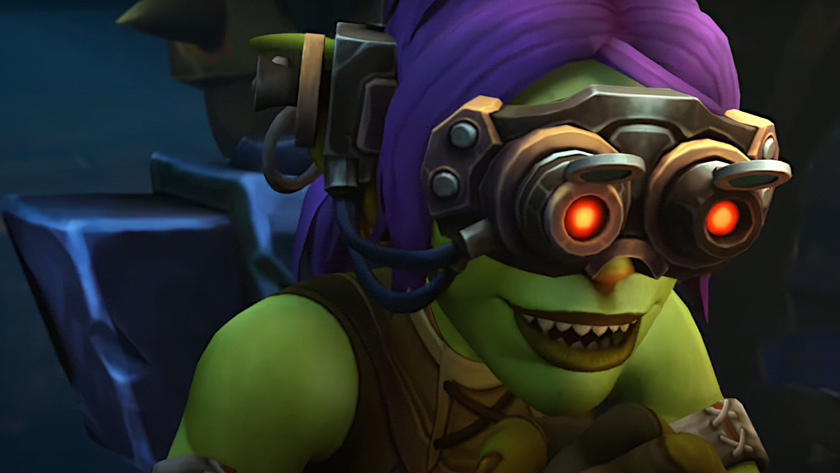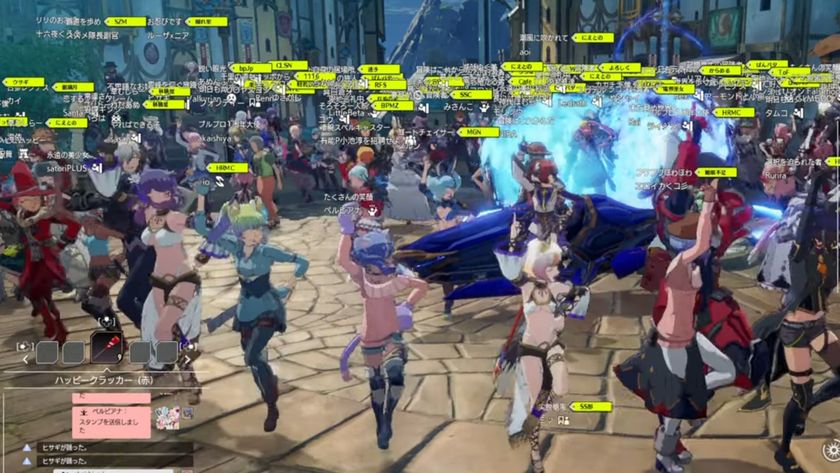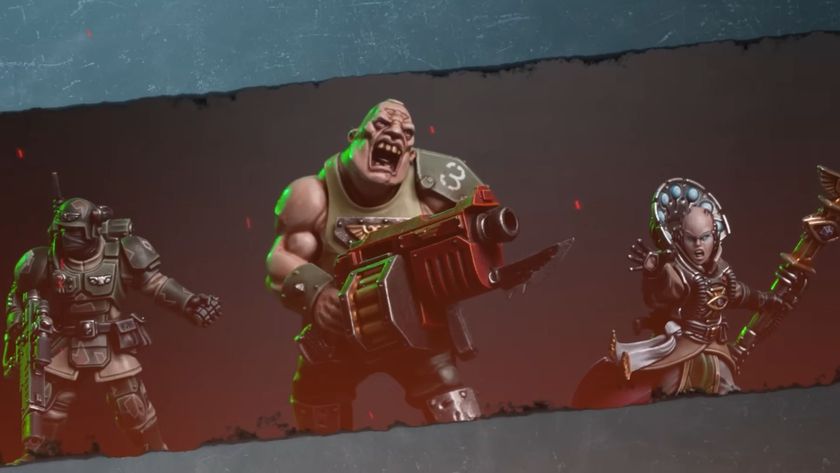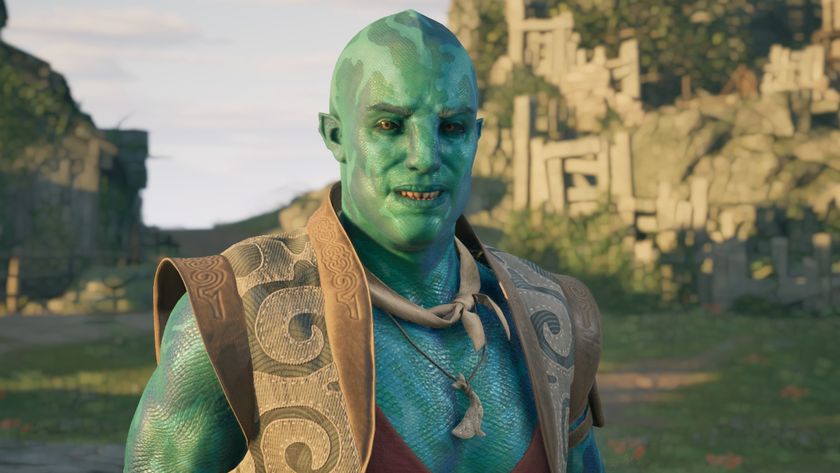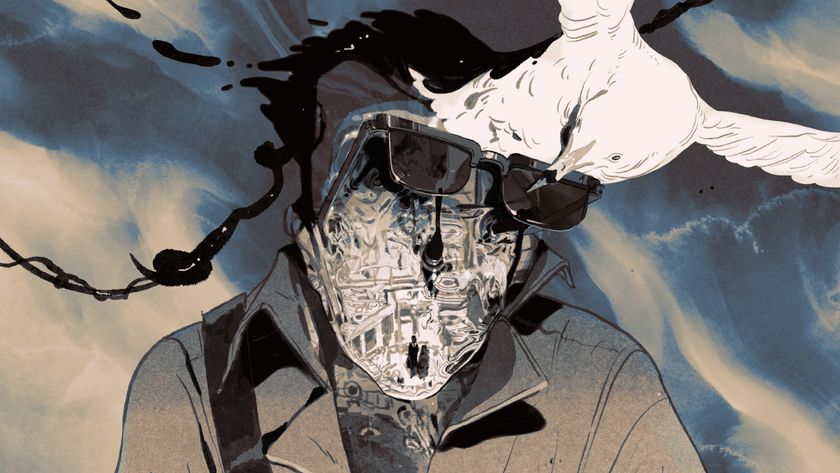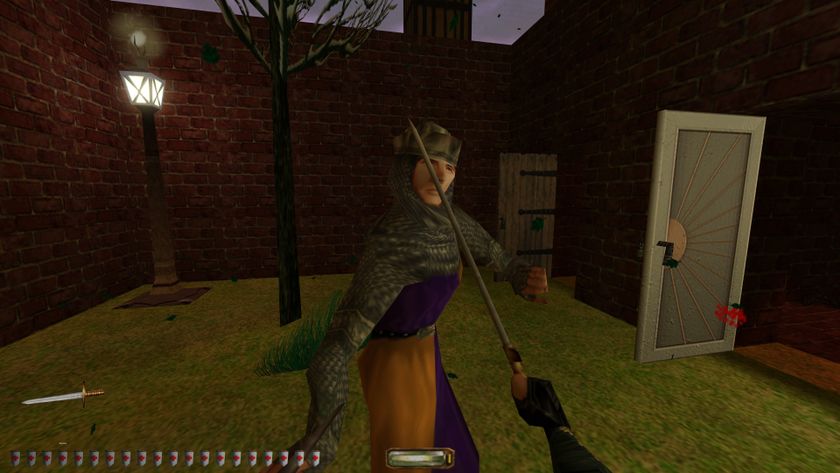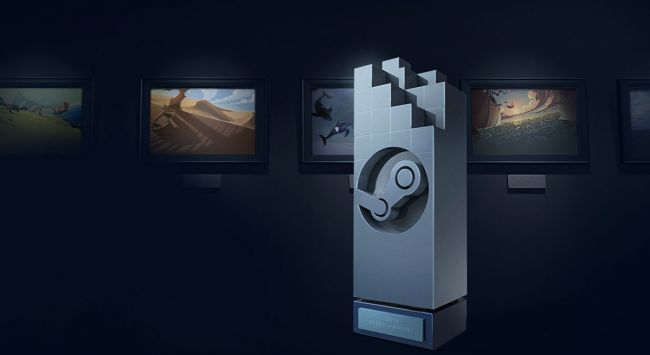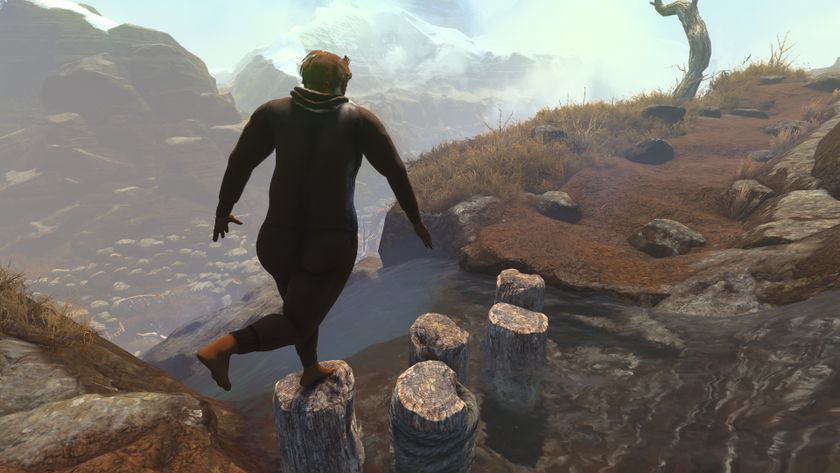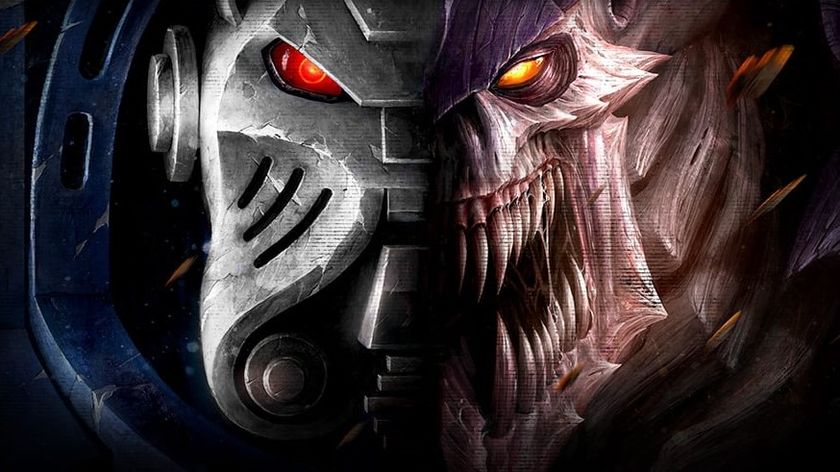The Force of TOR: MMO devs weigh in on what's at stake with BioWare's MMO
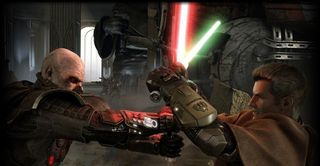
It's an understatement to say that The Old Republic is exciting for Star Wars and MMO fans. BioWare's team-up with LucasArts brings the developer back to the beloved Knights of the Old Republic universe, serving as a continuation of the highest-rated Star Wars series of all time. But for the people that make games, it's about much more than excitement. TOR is likely the largest, most important MMO release since Blizzard's World of Warcraft set the standard for the genre over six years ago.
While elements like the Smuggler class's ability to take cover shows that BioWare is taking modern action mechanics into account during design, TOR's main focus is on presentation and interactivity—two areas ripe for expansion. Electronic Arts is betting a lot of money that players want a story-based MMO—TOR is its most expensive game to date. Luckily, crafting compelling stories is BioWare's specialty. Utilizing interactive cutscenes and voice acting, TOR lets players experience missions in a manner usually reserved for single-player games. The developer even created a system that allows multiple players to progress through the story together, with each having a turn to make choices that could dramatically alter each mission. These advancements are going to be important if BioWare is going to stay competitive in the subscription market, especially with WoW sitting on 12 million active subscribers.

Galactic civil war
TOR will have a subscription fee, but does that mean that the game will be forced to compete with World of Warcraft for the same pool of customers? Perfect World Entertainment's Director of Marketing Jonathan Belliss doesn't think sharing is an option: “You aren't going to see a lot of gamers playing more than one subscription MMO.” Whether BioWare and Blizzard like it or not, TOR's combat, quest design and subscription fee setup bear enough similarity to WoW's that the two games will be pitted head-to-head against each other, at least in the minds of gamers.
We talked to developers working on different MMOs from all across the industry. It didn't matter if they were creating titles for kids, making free-to-play games, or polishing AAA subscription-based releases for an impending launch: everyone's eyes are on TOR. Nathan Richardsson, executive producer for CCP Games's EVE Online, thinks that “whatever happens to TOR, it will have massive repercussions throughout the entire industry. [Those repercussions] will range from the cancellation of games and the closing down of studios to people rethinking how to approach the MMO genre.”

Don't get cocky
If TOR is everything that fans hope it'll be, we may finally find out how many people are willing to pay for a subscription-based game. Between WoW's mastery of the fantasy genre and TOR's story-driven sci-fi romp in the most popular geek franchise on the planet, that's a solid one-two punch to bring out everyone that's ever considered paying a subscription fee. “There's definitely a need for genre choices beyond fantasy,” explains Nexon America's Director of Game Operations Minho Kim. He's not the only one saying this—many agree that there's an overabundance of orcs and paladins when it comes to MMOs, including VP of Development at KingsIsle and co-creator of Wizard101, Josef Hall. Hall warns that games in similar settings leads to “cannibalization,” a belief many other developers shared with us. Todd Harris, executive producer at Hi-Rez Studios, whose MMOFPS Global Agenda mocks the over-saturation of fantasy MMOs in its ad campaigns, echoes the concern that “too many MMOs are still fantasy-based” and hopes to see “developers innovating with setting.”
With games like MapleStory and Vindictus, Nexon isn't necessarily known for creating story-driven engagements, but Kim is anxious to see players' responses to BioWare's focus on narrative and its use of voiceovers. If successful, TOR could start a shift to story-driven MMOs—a move that Runes of Magic's Andreas Weidenhaupt, CEO of Frogster Online Gaming, and Carbine Studios's Lead Designer Tim Cain anticipate. Cain, currently working on an unannounced game for Guild Wars publisher NCsoft, is hoping that the RPG will return back to its story-based roots. “Killing a villain in an RPG is exciting because of all of the story that led up to the encounter,” he says. “The player has become invested in his character and in the world, so the big combats actually mean something.”

Lack of faith
“I'm a huge fan of BioWare,” says Belliss, “however, the scale and supposed budget for TOR are so astronomical that I can see how it could potentially become a train wreck.” If TOR is as well-made as BioWare's other releases—most of which have been praised by fans and critics alike—and still fails, it'd speak volumes. It could prove that there's simply not enough room for more than one WoW-sized MMO in the subscription market, something Richardsson already believes. “If you start out with the goal to 'take down' WoW, you will fail miserably.” Others, like Age of Conan's Game Director Craig Morrison, wonder why anyone would ever try to “beat” WoW, considering the amount of funding it would take to compete with such a well-established game. BioWare claims they only need 500,000 subscribers for TOR to be profitable, but that number would undoubtedly feel like a letdown for a project of this size. If TOR fails to meet expectations, we'll likely see an even faster rise of the free-to-play business model. Bigpoint's CEO and founder, Heiko Hubertz, whose browser-based Battlestar Galactica Online recently went into open beta, believes that free-to-play is becoming the more viable option. He told us, “While WoW has clearly demonstrated its staying power, plenty of other games have shifted to F2P after failing to achieve critical mass—and return on investment—through subscriptions.”
The biggest gaming news, reviews and hardware deals
Keep up to date with the most important stories and the best deals, as picked by the PC Gamer team.
Even more important than finding out what happens will be looking back after the dust settles to determine why it happened. BioWare and EA are investing as much (or more) time, money and effort into making their story-based MMO than any game developer could reasonably expect to before launch. But what if we find out afterwards that MMO gamers simply aren't looking for that kind of narrative? Nexon's Minho Kim is skeptical: “I'm really curious if people will love the [voiceovers] beyond the initial experience, or if we will hear people say 'I grinded through eight hours of voiceovers today.'” There's also a chance that BioWare's game is simply flying too closely to WoW's style of gameplay, something Todd Harris is weary of in general. He told us, “A developer would be foolish to try to chase WoW's success by developing a game that's too similar.” If TOR fails, developers will likely look to revolutionize on different fronts, such as integrating different styles of combat, deeper persistence, more complex economic and social systems, more challenging encounters or one of the many other ways to mix up gameplay without requiring TOR's massive budget.

Use the Force
No matter what happens, The Old Republic will be an important launch for MMO gamers. Its success or failure will tell developers more about what gamers want and how they want to pay for it more accurately than any research could. Of course, we'll learn if BioWare and EA's gamble of giving MMO players something different paid off, but we'll also learn a lot about the long-term viability of subscription-based games, story-driven MMOs, and whether or not WoW players can be swayed away from their game of choice (or if doing so is even necessary to succeed).
It'll be you, the gamers, who decide what TOR will mean for the future. Whether you'll be slashing apart droids with your Twi'lek or watching from the sidelines, TOR will not only shape the fate of the universe you're gaming in now, but all of the future ones as well. Everyone's watching to see what you think.
